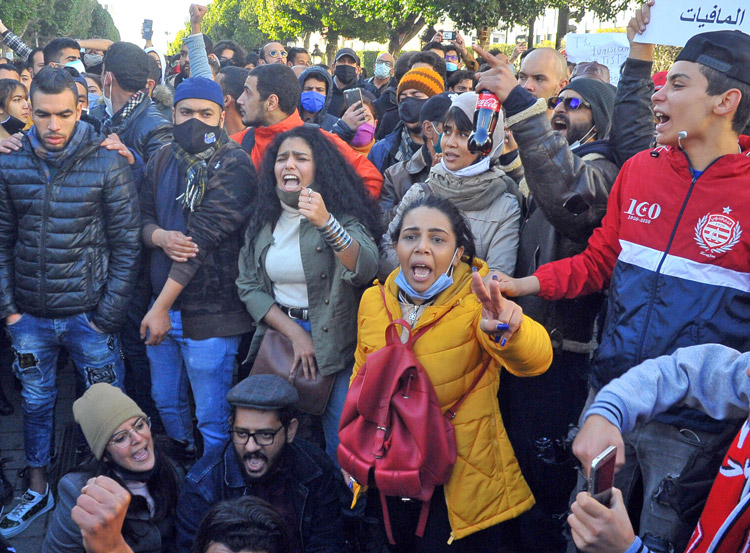Furious at persistent joblessness, rising inflation and cop brutality, thousands protested in cities across Tunisia from Jan. 14. That day marks 10 years since the overthrow of the hated regime of former President Zine El Abidine Ben Ali.
Recent actions began in response to a cop striking shepherd Abdul Rahman al-Othmani in the northern town of Siliana after his sheep strayed onto government property. A video of the cop abusing the shepherd went viral Jan. 14.
Citing the spread of coronavirus, the government had imposed a four-day lockdown banning anniversary celebrations of the ousting of Ben Ali. Despite this, protesters set up roadblocks, fought with police and attacked businesses, according to the authorities. Cops arrested over 600 people. Above, demonstration in Tunis Jan. 19.
One-third of all young people in the country are unemployed, prices for necessities are soaring and rising numbers are seeking to emigrate. Widening inequality between the more developed coastal region and impoverished towns inland spurred protests last year. Demanding the government provide jobs, demonstrators took over the government-owned phosphate mine in the southern town of Gafsa, bringing production to a halt in November.
The following month, the government extended a five-year-long state of emergency allowing it to censor the press, ban strikes and any meetings it claims “create disorder.”
In 2011, Ben Ali was ousted as masses of working people protested the impact of the worldwide capitalist crisis and his attacks on political rights. This sparked a wave of uprisings against similar intolerable conditions across Egypt, elsewhere in North Africa and the Mideast. Despite toppling some tyrannical regimes, nowhere were working people able to forge a leadership capable of leading millions to form their own workers and farmers governments.


